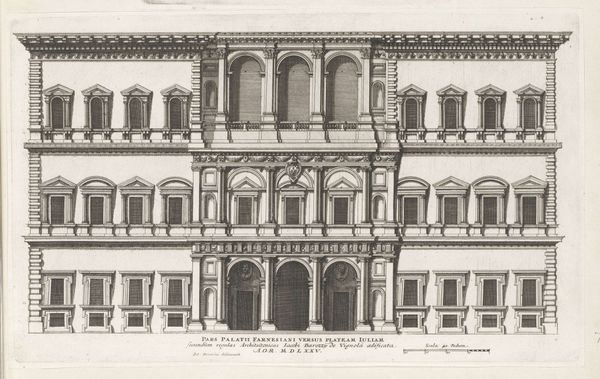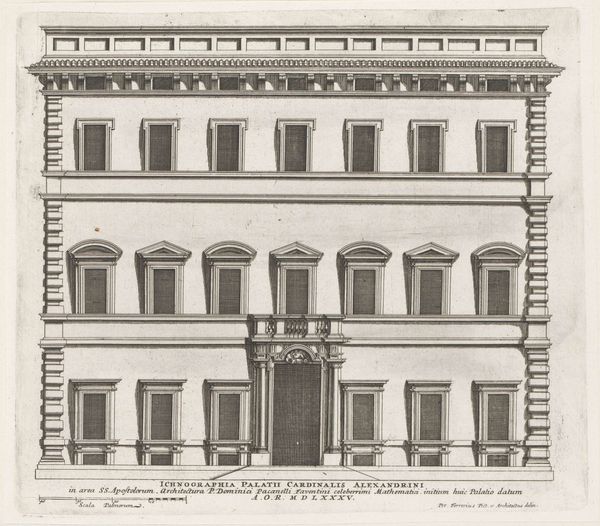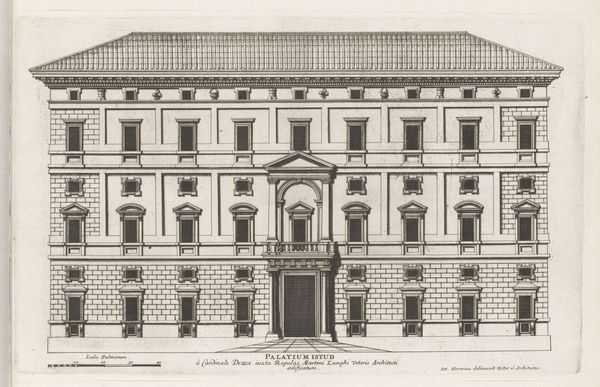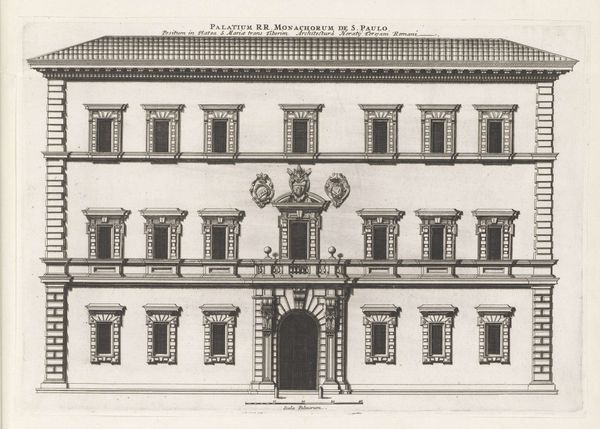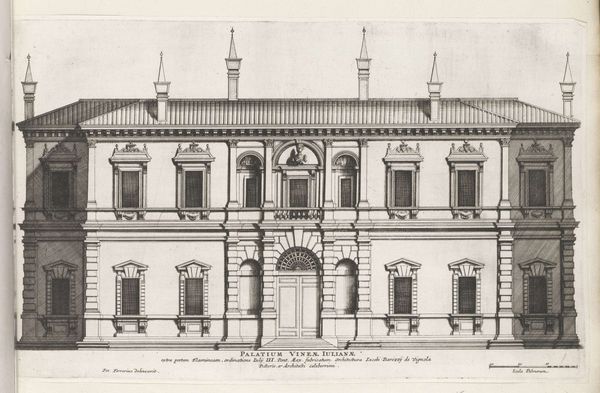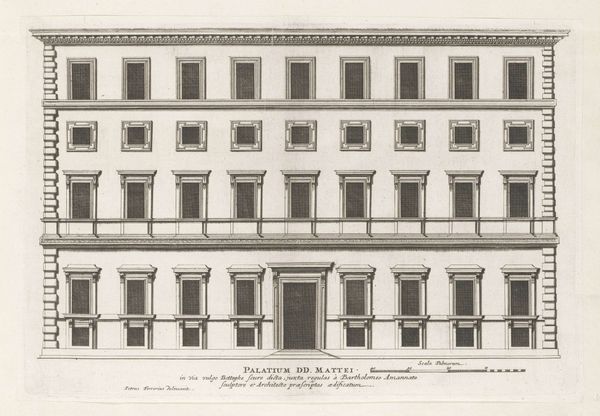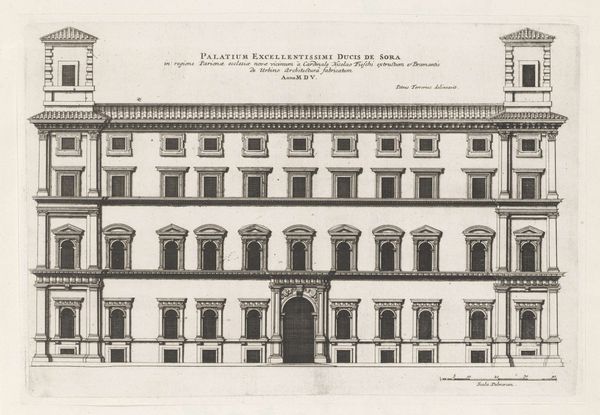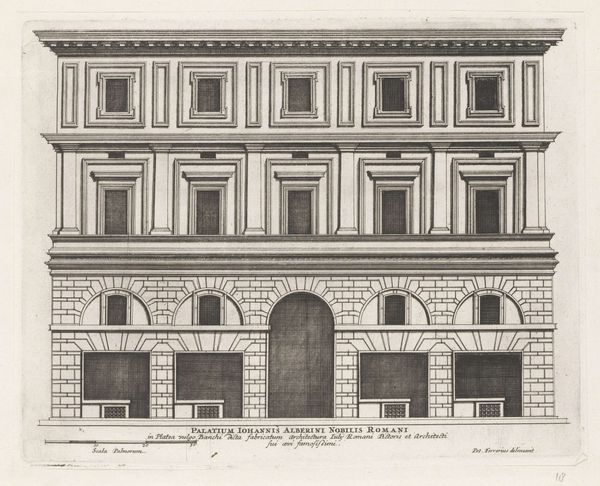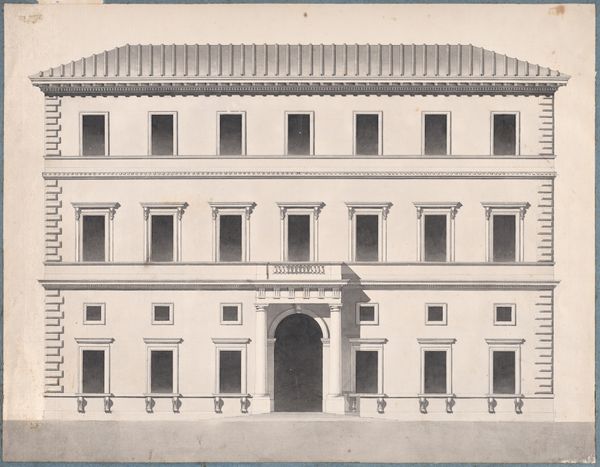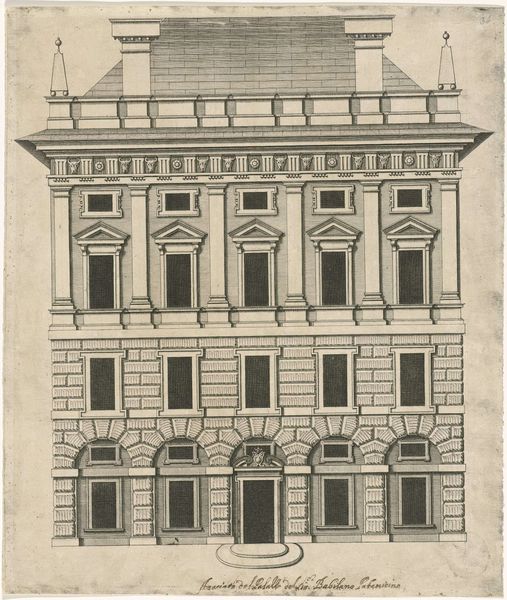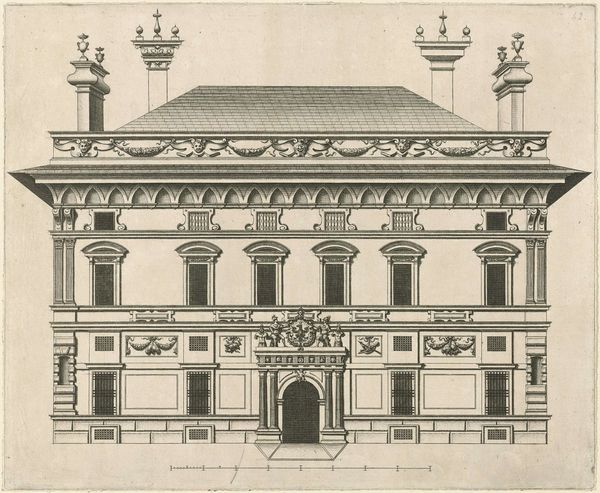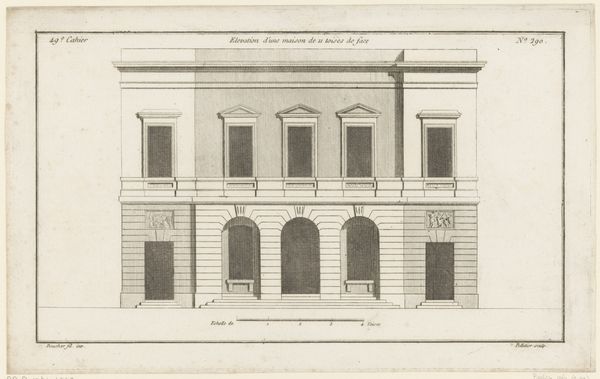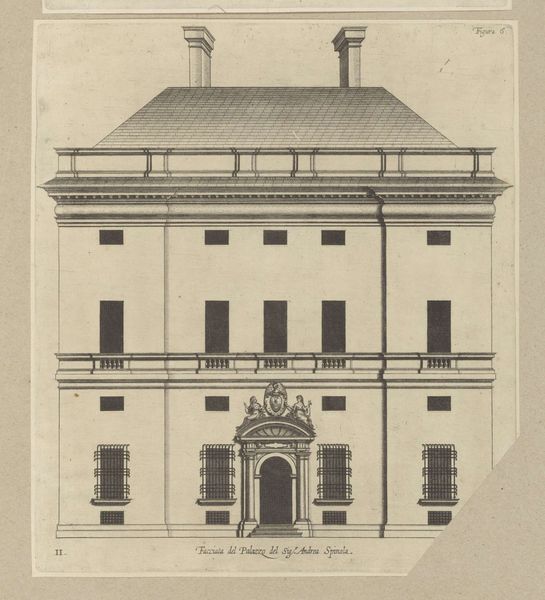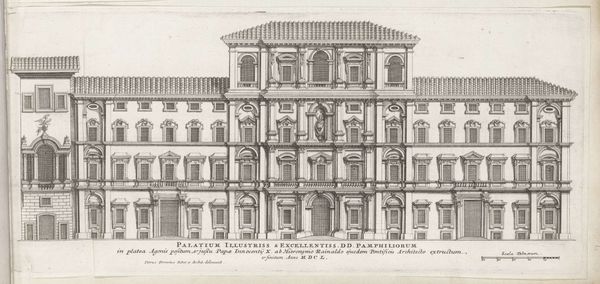
drawing, ink, architecture
#
drawing
#
baroque
#
ink
#
geometric
#
line
#
cityscape
#
architecture
#
building
Dimensions: height 225 mm, width 412 mm
Copyright: Rijks Museum: Open Domain
Curator: Editor: This drawing, "Façade van Palazzo del Quirinale te Rome," created in 1655 by Giovanni Battista Falda, is rendered in ink. The stark geometric lines give it such a severe, almost authoritarian feel. What can you tell me about it? Curator: It’s a fascinating snapshot of power, isn’t it? The Quirinal Palace wasn't just architecture; it was a stage for papal authority during a period of intense religious and political upheaval. Notice how Falda’s precise lines reinforce a sense of unyielding control. But consider this: what power structures are inherently embedded within architectural renderings like this, particularly when circulated as prints? Who was this image for, and what did it mean to them? Editor: I hadn't thought about the image itself as an instrument. I guess it served to broadcast the power of the papacy to those who might not ever visit Rome, like propaganda almost? Curator: Precisely. Think about the Baroque style – the drama, the grandeur. It wasn’t just about aesthetics; it was about asserting dominance and projecting an image of unassailable strength in the face of challenges to religious authority. How do you think this meticulous portrayal of order and stability played into the social and political climate of the 17th century? Editor: So the drawing isn’t just a picture of a building. It’s a statement? An assertion of papal dominance and the cultural weight of Rome? Curator: Absolutely. And even further, an active participant within the dynamics of power, representation, and control. Editor: I see this in a whole new light now. Thanks! Curator: Likewise, it is so crucial to question whose narrative prevails in art, and who is systematically written out.
Comments
No comments
Be the first to comment and join the conversation on the ultimate creative platform.
